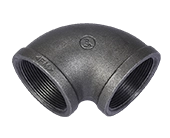When selecting pipe for a project, several important considerations should be taken into account to ensure that the chosen pipe meets the requirements of the application and delivers optimal performance.
Here are some key factors to consider:
- Material Compatibility: Choose a pipe material that is compatible with the fluid or gas being transported, as well as with other components of the system such as valves, fittings, and seals. Common materials include steel, copper, PVC, CPVC, PEX, and various types of alloys.
- Pressure and Temperature Ratings: Determine the maximum operating pressure and temperature conditions of the system, and select a pipe with appropriate pressure and temperature ratings to ensure safe and reliable operation.
- Corrosion Resistance: Consider the corrosive properties of the fluid or gas being transported, as well as environmental factors such as moisture, humidity, and exposure to chemicals. Choose a pipe material that offers adequate corrosion resistance to ensure long-term durability and reliability.
- Size and Diameter: Select the appropriate pipe size and diameter based on the flow rate requirements of the system, china pipe as well as considerations such as space constraints, flow velocity, and pressure drop.
- Cost Considerations: Evaluate the cost of the pipe material, as well as installation, maintenance, and lifecycle costs. Consider factors such as durability, longevity, and the need for special tools or equipment for installation.
- Installation Requirements: Consider the ease of installation and any special requirements or considerations for joining, bending, or supporting the chosen pipe material. Factor in the availability of skilled labor, as well as any specialized equipment or tools that may be needed.
- Environmental and Regulatory Compliance: Ensure that the chosen pipe material meets relevant environmental regulations and industry standards for safety, performance, and environmental impact. Consider factors such as fire resistance, chemical compatibility, and environmental sustainability.
- Insulation and Thermal Properties: In applications where temperature control is critical, consider the insulation and thermal properties of the pipe material to minimize heat loss or gain and maintain the desired temperature within the system.
- Flexibility and Adaptability: Choose a pipe material that offers the necessary flexibility and adaptability to accommodate changes or expansions to the system over time. Consider factors such as ease of modification, compatibility with fittings and connectors, and the ability to withstand bending or shaping.
- Manufacturer Reputation and Warranty: Select a reputable manufacturer with a track record of producing high-quality pipe products and providing reliable customer support. Consider factors such as product warranties, technical support, and availability of spare parts or replacement components.
By carefully considering these factors when selecting pipe for a project, you can ensure that the chosen pipe material meets the requirements of the application, delivers optimal performance, and provides long-term durability and reliability.
